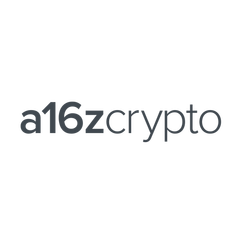
Blockchain-based distributed file transfer and storage
FIL price live chart

Download Filecoin wallet app
Store & Transfer FIL safely
Monitor your FIL balance in USD
Receive FIL in BNB network
Send Filecoin by mobile phone number with 0% fee
FIL wallet mobile app for iOS and Android
Filecoin basics
Filecoin
Infrastructure
Filecoin is a decentralized data storage network built by Protocol Labs that allows users to sell their excess storage on an open platform. It acts as the incentive and security layer for IPFS (InterPlanetary File System), a peer-to-peer network for storing and sharing data files. Filecoin turns IPFS' storage system into an "algorithmic market," where users pay storage providers in Filcoin's native token, FIL, to store and distribute data on the network.
Filecoin token type
FIL
Native
Payments
The Filecoin token (FIL) is the native crypto token of the Filecoin network, similar to bitcoin and ether. Token holders can use FIL to participate and transact in the Filecoin network. In particular, users pay miners in FIL to store or distribute data and to retrieve their information. Storage providers also post FIL as collateral to provide a minimum level of guarantee of their service, which gets slashed should a deal with a customer fall through.
Filecoin history and first price
Crowdsale, Private Sale
Within a short timespan in 2017, Filecoin raised $52 million in an advisor pre-sale followed by a $153 million public offering through token sale platform CoinList. It raised these funds using a relatively new method known as a Simple Agreement for Future Tokens (SAFT). The SAFT is a legal agreement inspired by the Simple Agreement for Future Equity (SAFE), pioneered by Y Combinator. It gives accredited investors an allocation of tokens once the network is live in return for an upfront investment.
Of the $205 million raised, $52 million was sold to advisors at a rate of $0.75 per FIL token, with an additional discount of between 0% and 30%. Vesting for advisors ranged from one to three years. The remaining $153 million was raised from investors with FIL tokens priced based on a linearly increasing function. The starting price for the sale was $1.00 per FIL and increased up to $5.00 per FIL using the formula (price = $ amount raised / 40 million), with a hard cap of 200 million FIL sold. Investor tokens, from the advisor and token sale rounds, will vest on variable periods with a six-month minimum.
FIL has a max supply of two billion, of which 600 million were pre-allocated at genesis according to the following allocations (percentages based on max supply):
- 10.5% was allocated to Protocol Labs with a 6-year linear vesting
- 4.5% was allocated to Protocol Labs team member and contributors with a 6-year linear vesting
- 7.5% was allocated to 2017 SAFT investors with a 6-month to 3-year linear vesting
- 2.5% was allocated to future fundraising or ecosystem development
- 5% was allocated to the Filecoin Foundation with a 6-year linear vesting
The remaining 70% of the total supply is allocated to Filecoin miners and will be released over time to reward providing data storage service, maintaining the blockchain, distributing data, and running applications.
Filecoin is looking to provide an alternative to traditional online storage providers and protocols. Its technology acts as an incentive layer for the peer-to-peer file transfer system IPFS (InterPlanetary File System), which uses hash-addressed content structures to store data instead of centralized servers and IP addresses. This is intended to reduce redundancy, increase permanence, and improve efficiency.
Filecoin incentivizes IPFS by rewarding storage providers and retrievers for contributing resources to the system. The network also comes with built-in Ethereum integration allowing developers to access data on Ethereum’s blockchain and interact with its smart contracts.
Filecoin is being developed by Protocol Labs, a development firm founded in 2014 by Juan Benet. Benet and crew constructed Filecoin and IPFS in tandem, raising a few Seed equity rounds to fund the process. In 2017, the team hosted a token sale to secure funds for Filecoin's development, which raised around $205 million in one of the largest token offerings at the time.
Protocol Labs seeks to build a fundamental layer for data infrastructure that can be used by both blockchain and traditional providers, like Amazon Web Services (AWS) and Microsoft Azure. The project plans to achieve this goal by creating a marketplace in which any user who has storage capacity can connect to the network, creating a supply of unused storage both in consumer hardware as well as data centers of existing businesses. The Filecoin team believes this will reduce the price of storage in a way similar to how sharing economy companies like Airbnb reduced the price of short-term rentals in marketplaces traditionally dominated by large players with large capital requirements.
Use-case specific devnets opened to protocol developers, miners, and other users to work with
Testnet of go-filecoin nodes starting in 100s, gradually ramping up orders of magnitude
The alphanet is a long-running Filecoin network
Filecoin's first public testnet will allow prospective storage miners and clients to start experimenting with the mining hardware requirements and the data storage/retrieval capabilities of the network. The testnet also provides developers with the resources to begin building Filecoin-based applications. The testing ground only support the lotus client at launch, but the team plans to connect other implementations, including Filecoin’s Go client, before moving on to Phase 2.
See Filecoin's development roadmap here
The team expects to enter its second testnet phase with multiple secure and interoperable Filecoin implementations. Testnet Phase 2 will also include a security review and audit for all clients as well as a "trusted set up ceremony," which will help prepare the project for its mainnet launch.
The team anticipates for this phase to run until Jun. 26, 2020, setting up the network for a tentative mainnet launch in mid-July or August. Filecoin initially expected to release Phase 2 around Feb. 24 but has pushed back the launch date multiple times for reasons related to ensuring network stability and the coronavirus pandemic.
See Filecoin's development roadmap here
Filecoin launched an incentivized testnet to encourage prospective developers and miners to stress test the network prior to its mainnet launch, anticipated for Sep. 2020. The event will run for three weeks and will involve miners competing to onboard as much storage capacity as possible to the network. The top 100 miners globally will earn FIL token rewards based on how much storage they and the network achieve during the test period. Any rewards earned will be encoded into the genesis block and will vest linearly over six months from mainnet launch.
Learn more: Filecoin’s Space Race Blog Post Space Race Developer Documentation
The Filecoin mainnet launched at block 148,888, which arrived on Oct. 15, 2020. will introduce its long-awaited file storage network with mining incentives for those providing storage resources. The event will also begin distributing Filecoin's native token, FIL, to crowdsale investors that first purchased the token back in 2017.
Learn More: Announcing Mainnet Ignition & Liftoff Filecoin Mainnet is Live
Filecoin technology explained
Protocol Labs introduced many new technologies in its Filecoin whitepaper that could add value to multiple blockchain projects. Filecoin is secured by proof-of-work in the same way that bitcoin is, but this work is specifically related to storage of data Instead of finding a random nonce to make the block hash fit in a target range, the networks proof-of-work is restricted to proving that a miner has stored data for a specific duration and replication. This is achieved with two new types of proof-of-work: proof-of-replication (PoRep) and proof-of-spacetime (PoSt).
Proof-of-replication allows a server to convince a user that some data has been replicated to its own uniquely dedicated physical storage while proof-of-spacetime allows an efficient prover to convince a verifier that they are storing some data for a specified duration of time.
These proofs allow Filecoin to solve issues with large-scale storage networks made of independent parties, by making it theoretically impossible to falsify data storage records to increase miner rewards. Competitors like Siacoin ($SC) and Storj ($STORJ) lack this functionality, though they have not yet created enough storage demand for this to be a significant issue.
Miner proofs are used to create a network based on three primary methods, put, get, and manage. The put and get methods are responsible for putting data in storage and accessing it on client request respectively. The manage method is responsible for managing the marketplace by matching buy and sell orders as well as managing buyer and seller reputation on the platform.
These methods are executed across two marketplaces, storage and retrieval, which are managed by the different miners. Protocol Labs believes that miners will often participate in both markets. Storage miners are responsible for receiving put requests and storing client data while also pledging collateral proportional to the data. They will be penalized by losing this collateral in the event of invalid or missing proofs. Storage providers run the manage method in conjunction with clients and auditors. Retrieval miners are responsible for managing get requests and giving clients their data. While retrieval miners do not need to pledge collateral, they are still compensated in the native Filecoin for performing work for the network.


Filecoin supply limit
Fixed Supply
Premined Rewards
Yes
2000000000





























Filecoin consensus
Other
Proof-of-Spacetime
Proof-of-Replication (PoRep) and Proof-of-Spacetime (PoSt) The Filecoin protocol intends to use Proof-of-Replication (PoRep) and Proof-of-Spacetime (PoSt) to prove files are stored securely over time within a decentralized network.
- PoRep is a type of Proof-of-Storage featuring the specific properties that outlined in this post
- PoSt defines the mechanism by which miners create blocks that are storing data. Clients (network users) can source miners of data storage and data retrieval, different operations that existing within separate decentralized markets. PoSt provides a level of verifiability so that data can be stored and retrieved in a distributed, multi-market system.
Mining Storage miners can earn FIL by storing data for clients and "computing cryptographic proofs to verify storage across time." Unlike Proof-of-Work mining, the probability of earning a block reward (and transaction fees) is "proportional to the amount of storage the miner contributes to the network."
On the other hand, retrieval miners can receive FIL by winning bids for a client request. The market value of the file in question determines the miner's payout. Available bandwidth and initial response time for details (which could be influenced by network latency or proximity to a client) impact a miner's ability to close deals and retrieve data on the network. Therefore, the "maximum bandwidth of a retrieval miner will set the total quantity of deals" they can win.
With the network still in development, the mining equipment specifications (specifically for CPU and RAM) remain unknown. But the team insists the mining hardware will contain configurations with many standard hard drives and that any “specialized Filecoin mining hardware” will not exceed anything more than a highly optimized hard drive (in a sense, not optimal for ASICs). Filecoin also notes note that early storage and retrieval miners will be required to run full nodes.
Filecoin governance
No On-Chain Governance
Once the network launches, the Filecoin Foundation references in the project's whitepaper will take the responsibility of coordinating and funding future protocol improvements and development. The foundation is Protocol Lab's solution for the long-term governance and support of the Filecoin protocol. Protocol Labs has not released any other details on the Filcoin Foundation to date, but the foundation will remain inactive until the network launches. This foundation will receive 5% of the FIL tokens created at genesis to help fund future initiatives.
Store Filecoin with Cropty cryptocurrency wallet by 3 simple steps:
- Download the app from the Apple AppStore or Google Play, or open your browser wallet.
- Create your Cropty wallet account with Face ID or Touch ID security options.
- Transfer FIL from external wallet.
Receive Filecoin to your Cropty wallet by QR-code, phone number, e-mail and nickname:
- Download the app from the Apple AppStore or Google Play, or open your browser wallet.
- Create your Cropty wallet account, set up a nickname.
- Click ‘Receive’ and follow the instructions.
You can transfer your Filecoin holdings and store it safely with Cropty wallet. Cropty secures safety of your holdings through various verification options like using password, authenticator app, Face ID, Touch ID and backup codes. You can be sure no one can get access to you Filecoin holding except you.
Start investing in Filecoin with Cropty cryptocurrency wallet by 3 simple steps:
- Download the app from the Apple AppStore or Google Play, or open your browser wallet.
- Create your Cropty wallet account, set your authentication settings.
- Transfer FIL from external wallet.
The Cropty wallet provides the most convenient application for storing and transfering Filecoin. Cropty targets to become one the best crypto wallets for Android and iOS in 2026. Cropty provides convenient application and secure custodial services, built for crypto beginners, as well as for crypto-savvies.
You can receive Filecoin donations instantly with Cropty wallet. Download Android or iOS app or open the web version, sign up, click ‘Receive’ and follow simple instructions. Share your address with someone who wants to donate you in crypto.
You can receive Filecoin donations instantly with Cropty wallet. Download Android or iOS app or open the web version, sign up, click ‘Receive’ and follow simple instructions. Share your address with someone who wants to donate you in crypto.
You can send Filecoin instantly without fee in the Cropty wallet. Download Android or iOS app or open the web version, sign up, click ‘Send’, choose ‘Send via e-mail, phone number or nickname’ and follow simple instructions.
- Sign up to Filecoin wallet.
- Top up your balance with Filecoin.
- Store, trade or deposit your Filecoin.
- Get Filecoin deposit interest directly to your Cropty wallet.







